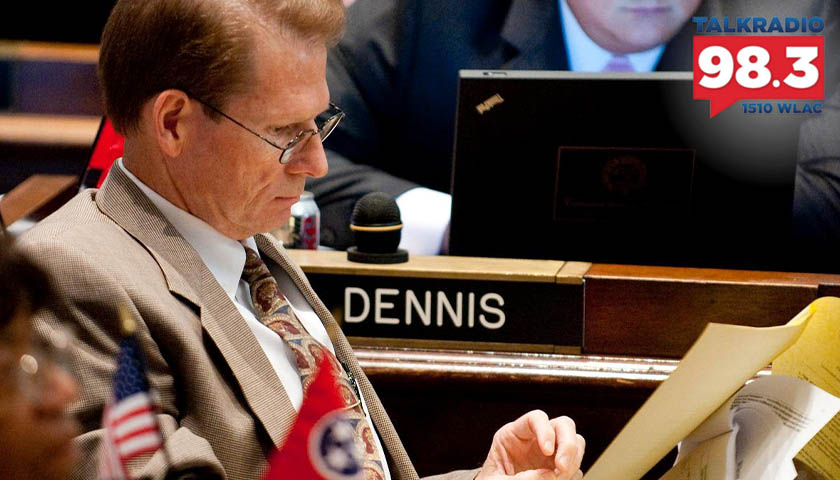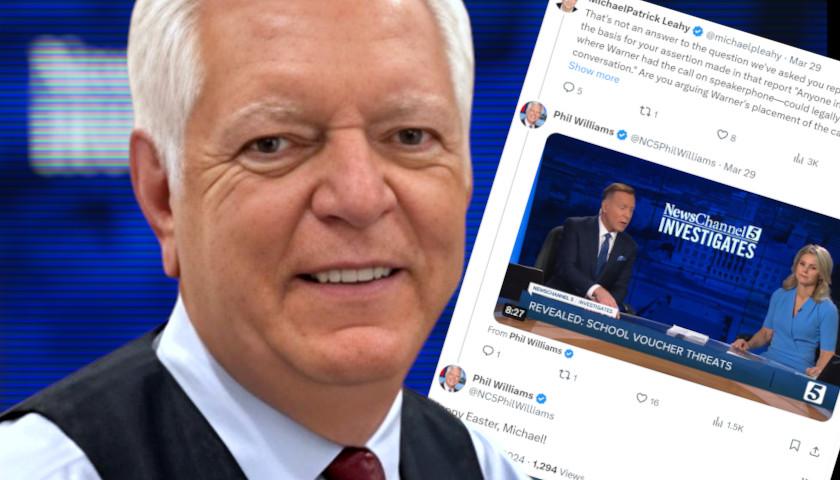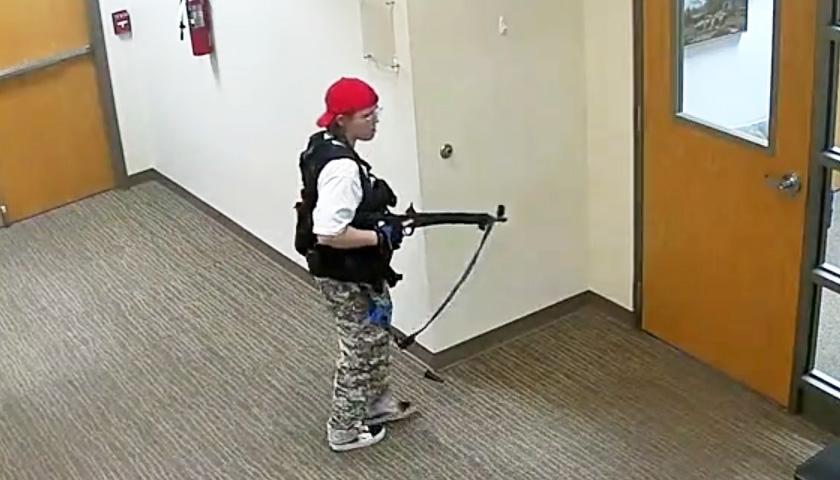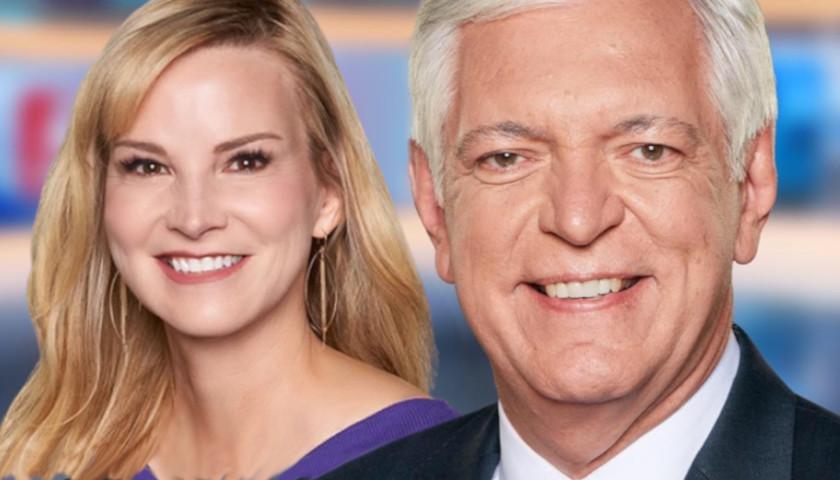Live from Music Row Tuesday morning on The Tennessee Star Report with Michael Patrick Leahy – broadcast on Nashville’s Talk Radio 98.3 and 1510 WLAC weekdays from 5:00 a.m. to 8:00 a.m. – host Leahy welcomed State Senator Joey Hensley to the newsmaker line to discuss his background, his path to becoming a doctor by way of community college, and his current step therapy bill.
Leahy: We welcome to our newsmaker Line State Senator Joey Hensley. Good morning, Senator Hensley.
Hensley: Good morning, Michael. How are you this morning?
Leahy: We’re great. This is, I believe, the first time you’ve been on our program here at The Tennessee Star Report, at least this legislative session. You represent Giles, Lawrence, Lewis, Maury, Perry, and Wayne counties. What is on your agenda today as you go up to Capitol Hill, Senator Hensley?
Hensley: Well, and first of all, I’d like to say I’ve heard you talking to Andy Ogles, who’s a good friend of mine. I represent Maury County in the Senate, and of course, he’s the Mayor of Maury County, and so he’s a good friend of mine.
I’m glad to hear him on your program. But several things: I’m a physician in my other life, a family practice physician. And so I have health care bills. I serve on finance, health, and education. So I have several bills.
One today that’s very important is a step therapy bill that I have today in commerce that would allow people to have expedited appeals and exceptions for step therapy.
Many people that need medication have to go through a process with the insurance where they try multiple drugs before they can try one that is effective. So this bill sets up another process so that they can get the medication that they need.
Leahy: It’s called step therapy.
Hensley: Step therapy, yes. Where insurance companies require, in many medications, that a person try a lower-cost medication for certain lengths of time and sometimes for months. And if that’s not effective, then they have to try something else. And sometimes these medications are not effective. They cause adverse reactions. And the patient still has to go through these steps before they can get the medication that they really need and it really helps them. So this bill sets up a process so that they can get the medication that they need sooner.
Leahy: Let’s talk about your background just for a bit. I’m looking at your bio. It’s quite interesting to me. Where did you go to high school? Did you go to high school in Maury County, or what county did you go to high school?
Hensley: Lewis County.
Leahy: Lewis County. Okay. So you got an associate degree at Columbia State. That’s your first step. But now you’ve become a doctor. You go from Columbia State, associate degree. You got a bachelor’s from Memphis and then an MD from the University of Tennessee at Memphis. Medical school there. When did you decide you wanted to be a doctor?
Hensley: I decided when I was small. I really don’t remember. I just always wanted to be a doctor. And it was unusual. I was the only doctor in my family. My father sold motorcycles, among other things, and I was the first health-care person in my family.
But I just always wanted to be a doctor. I wanted to come back to Hohenwald, which is my hometown, and that’s what I did. I’m a family practice physician and have been there practicing for 35 years now. But I just wanted to be a doctor and come back to my hometown in Hohenwald.
Leahy: As a kid, nobody in your family had ever been a doctor or a nurse or involved in health care?
Hensley: That’s correct. I was the first one. I have some nieces that are nurses now, but I was the first one.
Leahy: But there must have been something that happened that said, hey, I want to be a doctor. That was quite an ambition for a kid in rural Lewis County growing up in the ’50s or ’60s, right? (Hensley chuckles)
Hensley: Well, it wasn’t quite that far away, in the ’60s and ’70s (chuckles), but I just wanted to be able to help people. Wanted to come back to Hohenwald where the doctors were slim. In all the rural areas, there’s difficulty getting doctors. And I don’t really know what triggered me to want to do that, but that’s just what I always wanted to do. And I worked towards that. I went to Columbia State and then Memphis State and UT and then did a residence in Memphis and then came back to Hohenwald.
Leahy: Typically, if somebody wants to be a doctor, they will say, well, I want to go to this expensive private school and do pre-med. You go to Columbia State. It’s a two-year program. And you learned at Columbia State everything you needed to get into Memphis and then get into medical school. That’s an unusual path, isn’t it?
Hensley: Well, too many people, like you say, want to go to a private school or some kind of fancy school and go to a four-year school. But I’ve always, and all the time I’ve been in the legislature, encouraged people to go to community colleges. They can get their prerequisites there and then go on wherever they want to go. Columbia State was close to my house 30 miles away. I drove back and forth and went for two years. And actually, one of the things that I’m most proud of, I was named one of the top 40 alumni for Columbia State’s first 40 years. Now they’ve been open for over 50 years. But when they had their 40th anniversary, they named 40 alumni. And I was honored to be one of those. In the legislature, we have certainly made it so that people can go to community colleges free. With the Tennessee Promise and all the scholarships that we made available, students can go to community college free. And I would encourage them to do that. I went to community college, didn’t have any problem going on to Memphis State and going on to UT Memphis and getting my doctor’s degree.
Leahy: What would you say is the state of community colleges in Tennessee today?
Hensley: I think it’s very good. It’s better than it has been in the past. Columbia State actually just got $50 million in the budget to build a health care facilities building on their campus in Columbia. And I’m honored to represent Columbia and Maury County and Columbia State.
But all of the community colleges have made improvements the vocational schools or the TCAT are better now because we are really pushing to get more students to go to both of those and they can go free to a TCAT or a community college.
Leahy: That’s a very good incentive.
– – –
Tune in weekdays from 5:00 – 8:00 a.m. to The Tennessee Star Report with Michael Patrick Leahy on Talk Radio 98.3 FM WLAC 1510. Listen online at iHeart Radio.
Photo “Joey Hensley” by Joey Hensley.








